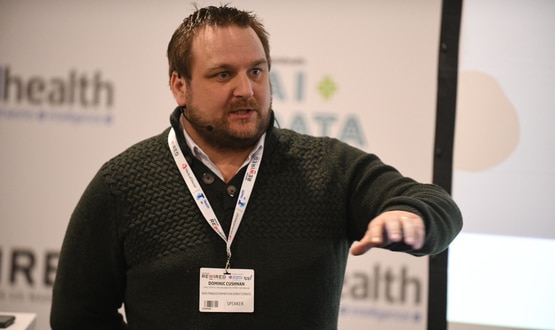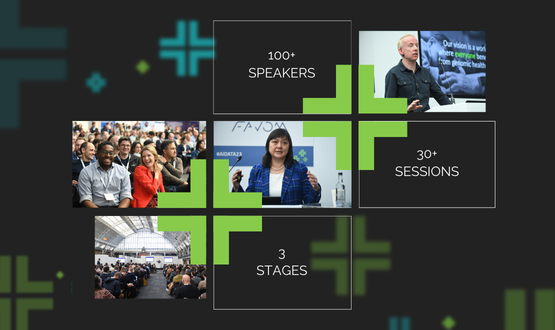Generative AI in health demands rigorous oversight says Cushnan
- 25 October 2023

As generative AI obtains a foothold in all aspects of life, health systems need to make sure AI tools are evidence-based and appropriate for clinical use, Dom Cushnan, director of AI, imaging and deployment at NHS England has told Digital Health.
Cushnan, who will be speaking at Digital Health’s new AI and Data event at the end of the month, acknowledged the excitement around generative AI and its potential in healthcare. But he emphasised that digital tools must undergo a rigorous process before they can be integrated into clinical practice.
This will include navigating a complex UK regulatory landscape including agencies ranging from the Information Commissioner’s Office (ICO) to the Care Quality Commission (CQC).
“Getting your way through that is difficult, and also for us as commissioners, it can be hard for us to understand what the things are that we want to do to make sure that we methodologically test whether these products work,” Cushnan told Owen Hughes in a feature looking at generative AI.
“And that’s not just AI – that’s digital health as a whole.”
To help move AI tools from concept to reality, NHS England has set up the AI and Data Regulation Service , which acts as a guide detailing the required standards and the agencies involved in bringing AI products to the market.
Rather than trying to “boil the ocean”, Cushnan explains that efforts from NHS England and the NHS AI Lab are geared towards AI tools that are suitable for clinical environments and use more straightforward statistical models for their decision-making.

“When we established the AI Lab, it was to try and solve that problem statement around the safe, ethical adoption of AI. We’re still testing out some of those products that are in the market at the moment that aren’t generative AI [and] have more straightforward statistical approaches to how they come to the decision,” Cushnan says.
Discussions at the centre
Cushnan confirmed that there are also discussions about the potential for generative AI in the NHS happening at the centre. “There are a couple of things that we’re thinking about, and no decisions have been made on them,” he adds.
While tools like ChatGPT have democratised generative AI and drummed up considerable excitement, there’s a clear need to exercise caution while the evidence base catches up – particularly in conversations concerning NHS care.
“I think the challenge that we all face is, how do we get to a point where we can realise the benefits of the technologies that we want to use?” says Cushnan.
“From the engagement that we’ve heard, most people would like some form of tooling that can help them get through work faster. And that’s on everything, whether you’re a policymaker and you’re thinking about what generative AI looks like, right through to a doctor on the ward or a nurse or an allied health professional.”
AI and Data is a new event by Digital Health, the organisers of the market-leading Rewired and Summer Schools. The event, which runs 30-31 October 2023 at the Business Design Centre, includes a wide-ranging programme on two stages: AI and Analytics, and Data and Research.
All sessions are CPD accredited. AI and Data is free for the NHS, public sector, start-ups, charities, education and research. Commercial tickets from £275+VAT. Find out more and register here.



